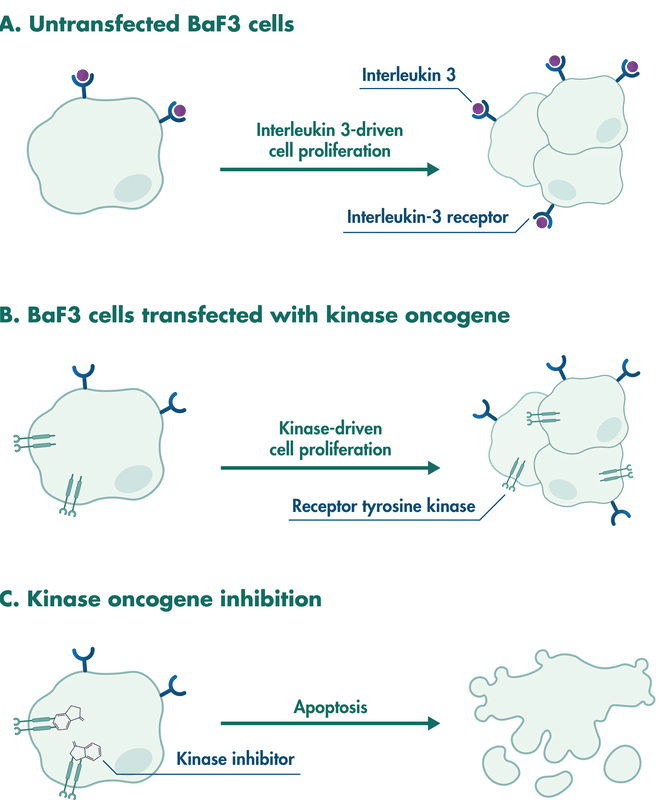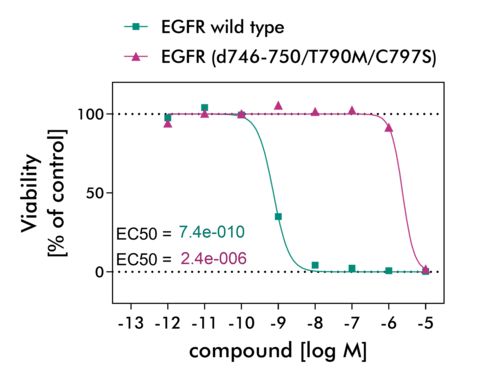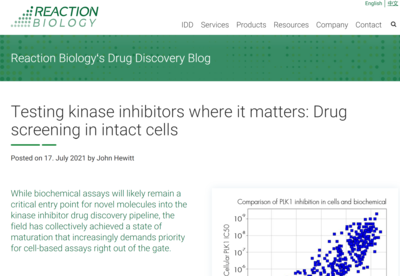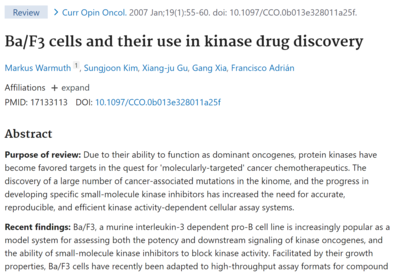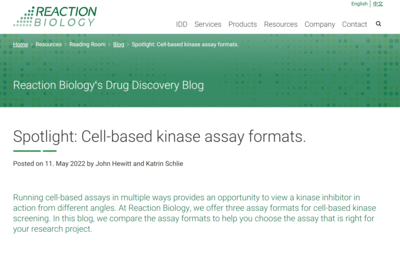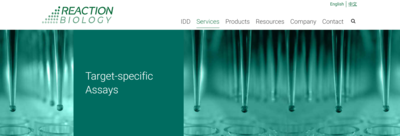BaF3 Cell Proliferation Assay
Reaction Biology performs compound testing with BaF3 cell lines stably expressing an oncogenic driver kinase. The principle of this assay is based on BaF3 cells, a pro-B-cell line that is dependent on interleukin 3 for its survival and proliferation. Transgenic overexpression of oncogenic kinases can transform the cell line to become independent of interleukin-3. Instead, cell proliferation is now dependent on the kinase signaling.
The assay is suitable to investigate if a compound is able to inhibit the activity of the transforming target kinase and – as a result – prevent the proliferation of these kinase-expressing BaF3 cells.
BaF3 Cell Proliferation Assays are helpful to answer a variety of research questions, including:
- determination of the potency of kinase inhibitors
- accessing the transforming capacity of new kinase mutations or kinase fusion proteins
- predicting the resistance to small-molecule kinase inhibitors elicited by point mutations
- investigating signaling events downstream of the kinase of interest
- off-target screening via rescue experiments by the addition of interleukin-3
The BaF3 Cell Proliferation Assay is one of three cell-based assay formats offered for compound testing at Reaction Biology including the NanoBRET Intracellular Target Engagement Assay and the Cellular Phosphorylation Assay. All assays provide compound testing in the physiologic environment of intact cells providing biologically relevant and reproducibly data.
Find an overview of our cell-based assay formats for kinase screening here.

